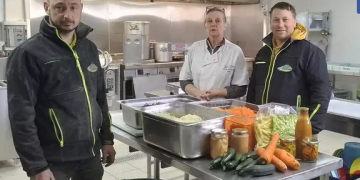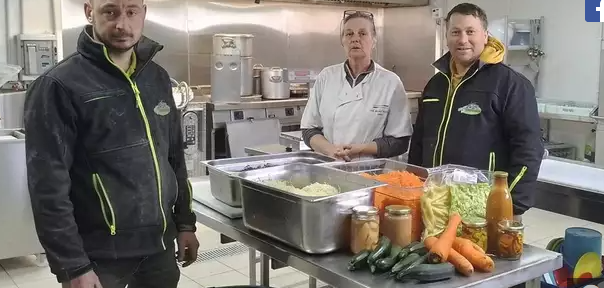Explore the innovative initiative of Arnaud Rouaux and Quentin Collin, who have established a vegetable and fruit processing enterprise near Saint-Malo, France. By transforming oversized or aesthetically flawed yet high-quality produce into soups, salads, compotes, jams, and fruit juices, they aim to combat food waste while promoting local farming practices and ecological sustainability.
In the picturesque region near Saint-Malo, Arnaud Rouaux and Quentin Collin are revolutionizing the way we perceive imperfect produce. Their venture, born out of a desire to mitigate food waste and harness the full potential of quality fruits and vegetables, is both innovative and environmentally conscious.
Partnering with local farmers and utilizing produce grown on their own land or nearby, Rouaux and Collin ensure that every ingredient boasts freshness and flavor, contributing to a vibrant local economy and reducing carbon emissions associated with long-distance transportation.
Their commitment to sustainability extends beyond the sourcing of ingredients. By employing techniques such as natural pollination and introducing beneficial insects like ladybugs to their farms, they promote ecological balance and minimize the need for synthetic pesticides.
The heart of their operation lies in a state-of-the-art laboratory, where skilled hands transform raw ingredients into an array of delectable products, from hearty soups to tangy fruit preserves. With meticulous attention to hygiene and safety standards, every step of the production process is carefully monitored and executed.
As their products hit the shelves of local markets and storefronts, Rouaux and Collin’s vision becomes a reality. Through their dedication to minimizing waste and championing sustainable agriculture, they inspire not only fellow farmers but also consumers to embrace the beauty of imperfection and the promise of a greener future.
The endeavor undertaken by Arnaud Rouaux and Quentin Collin underscores the potential for sustainable innovation within the agricultural sector. By transforming “ugly” produce into culinary delights, they not only mitigate food waste but also champion environmentally friendly practices. As farmers and consumers alike rally behind initiatives like theirs, the path to a more resilient and eco-conscious food system becomes increasingly tangible.































